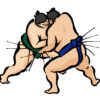What does yokatta mean? What in English? よかった!

“Yokatta —(よかったー)"
“Yokatta yokatta(よかったよかった)"
“Sore wa yokatta(それはよかった)"
Anyone who has experienced a little Japanese or who is studying Japanese usually comes across the word “yokatta”.
And, this is one of the words that people who plan to study Japanese in the future should know.
Let’s take a closer look at “yokatta”.
What does “yokatta” mean?
“Yokatta” is an adjective “yoi(よい:良い、善い、好い)” that changed to a continuous form to “yoka(よかっ:良かっ、善かっ、好かっ)” and ends with a particle “ta” that means the past tense.
“Yoi” means “good” and the meanings of the above example sentences are as follows:
“Yokatta —(よかったー)"
That’s good.
That’s great.
That’s a relief.
“Yokatta yokatta(よかったよかった)"
I’m relieved to hear that.
“Sore wa yokatta(それはよかった)"
I’m glad to hear that.
Other meanings are as follows.
Good for you.
That ’s wonderful.
I ’m happy to hear that.
Examples of “yokatta"
The followings are some example sentences using “yokatta".
(The present form of the adjective “yoi” changes more)
These are 1. basic style, 2. negative form of basic style, 3. polite expression, 4. negative form of polite expression.
1. Kono resutoran wa yokatta.
この レストラン は 良かった。
This restaurant was good.
2. Kono resutoran wa yoku nakatta.
この レストラン は 良く なかった。
This restaurant was not good.
3. Kono resutoran wa yokatta desu.
この レストラン は 良かった です。
This restaurant was good.
4. Kono resutoran wa yoku arimasendeshita.
この レストラン は 良く ありませんでした。
This restaurant was not good.
1. Watashi wa kinou kibun ga yokatta.
私 は 昨日、気分 が 良かった。
I felt good yesterday.
2. Watashi wa kinou kibun ga yoku nakatta.
私 は 昨日、気分 が 良く なかった。
I was not feeling well yesterday.
3. Watashi wa kinou kibun ga yokatta desu.
私 は 昨日、気分 が 良かった です。
I felt good yesterday.
4. Watashi wa kinou kibun ga yoku arimasendeshita.
私 は 昨日、気分 が 良く ありませんでした。
I was not feeling well yesterday.
If you want to say “yokatta” politely, add “desu” to the end.
To represent negation, “yoka” changes to “yoku” followed by “nakatta” or “arimasenndesita”.
These are present tense and hypothetical forms, just for reference.
(Present form)
Sono kashu no uta wa zenzen yokunai.
その 歌手 の 歌 は 全然 よくない。
That singer’s song is not good at all.
(Subjunctive form)
Moshi, sono shouhin no joutai ga yokunakattara henpin shitemo iidesuka?
もし、その 商品 の 状態 が 良くなかったら 返品 しても いいですか?
If the product is in poor condition, can I return it?
(Subjunctive form)
Tatoe, futari no naka ga yokunakatta to shitemo kamawanai.
たとえ、二人 の 仲 が 良くなかった と しても 構わない。
It doesn’t matter if the two don’t get along well.
In general, adding “desu” changes “yokatta” into a polite language, but in some cases, it is necessary to express it more politely. This is because there is a theory in Japan that the phrase “Yokatta desu” is not a proper honorific expression, even though it has “desu" in the phrase.
In that case, it is appropriate to say “gozaimashita(ございました)” instead of “desu”. However, it is not just a matter of combining “yokatta” and “gozaimasita”.
The “yokatta” part needs to be changed to “you(よう)” or “yoroshuu(よろしゅう)” and they will look like this:
“You gozaimasita(よう ございました)"
“Yoroshuu gozaimasita(よろしゅう ございました)"
“Yougozaimashita” is the most used, and “yoroshu …” sounds a bit ceremonious and a little bit old these days.
You can also say “Yoroshikatta desu (ne)(よろしかったです(ね))."
The present tense of “Yokatta” is “yoi(よい)”, and “yoi” has another way of saying “yoroshii(よろしい)”.
“Yoroshii” changes to past tense and becomes “yoroshikatta(よろしかった)”.
















